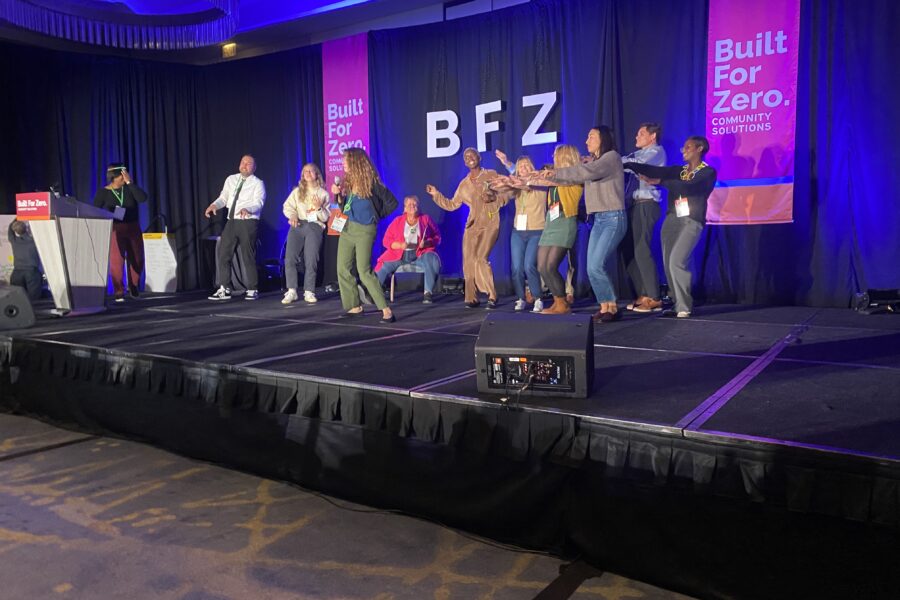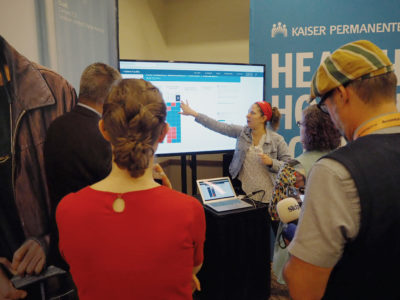In November, 94 communities gathered in the Twin Cities (Minneapolis-St. Paul) for three days dedicated to learning, connection, and inspiration at the Built for Zero Learning Session. This year’s event offered invaluable insights, shared new strategies, and deepened the movement’s commitment to making homelessness rare and brief. Here are the top takeaways:
1. Honoring Indigenous lands and legacies
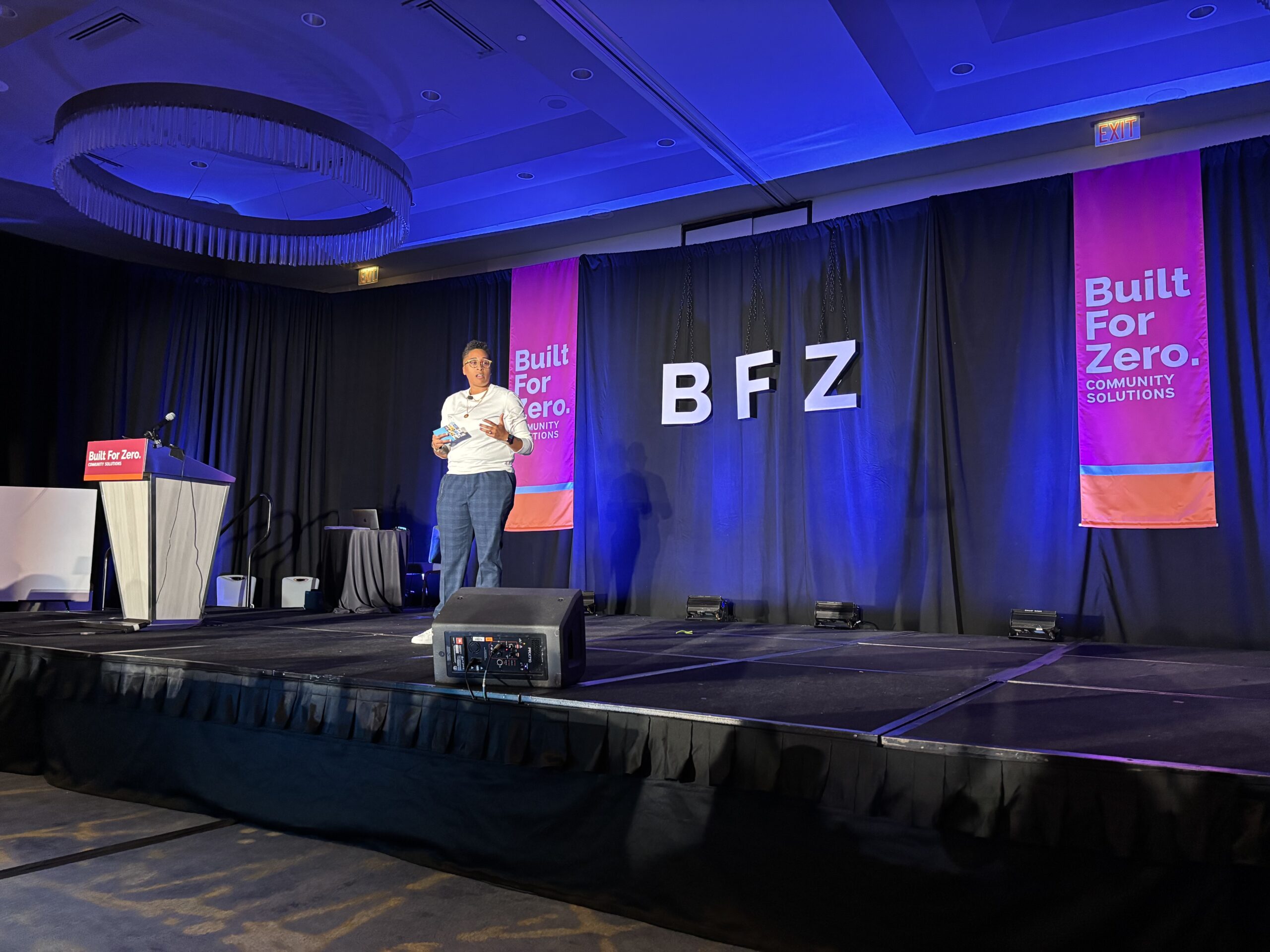
“This is not just about finding solutions — it’s about centering equity in every step of our work. Because when we center equity we can achieve fairness and justice.”
Janell Thomas
The Learning Session opened with a powerful land acknowledgment led by Janell Thomas, Director of IDEA at Community Solutions, grounding the event in reflection and respect. She highlighted the role of Indigenous history in addressing homelessness, reminding us of our responsibility to learn from the past as we move toward equity and justice. The acknowledgment Thomas shared serves as a rallying call to align our work with values of justice and equity, ensuring that everyone, regardless of background, has access to a home.
Read an excerpt from the land acknowledgment
We are here in Minneapolis, which sits on the traditional, ancestral, and contemporary lands of the Dakota people, who were forcibly removed from this land through violence, displacement, and broken treaties. We also acknowledge the Anishinaabe people, who have lived on and cared for this land for generations. Their stewardship and resilience in the face of colonization remind us of our ongoing responsibility to learn from the past and take meaningful action toward reconciliation and healing.
Land acknowledgements are not just words but an invitation to reflect on the historical and current impact of colonization and injustice. They remind us that we are living and working on stolen land, benefiting from the systemic erasure of Indigenous peoples, their cultures, and their histories. Today, as we honor the Indigenous communities who continue to fight for their rights and sovereignty, let us commit to not only recognizing but actively supporting their ongoing struggle for justice and equity.
2. Accelerating homelessness solutions through government partnerships
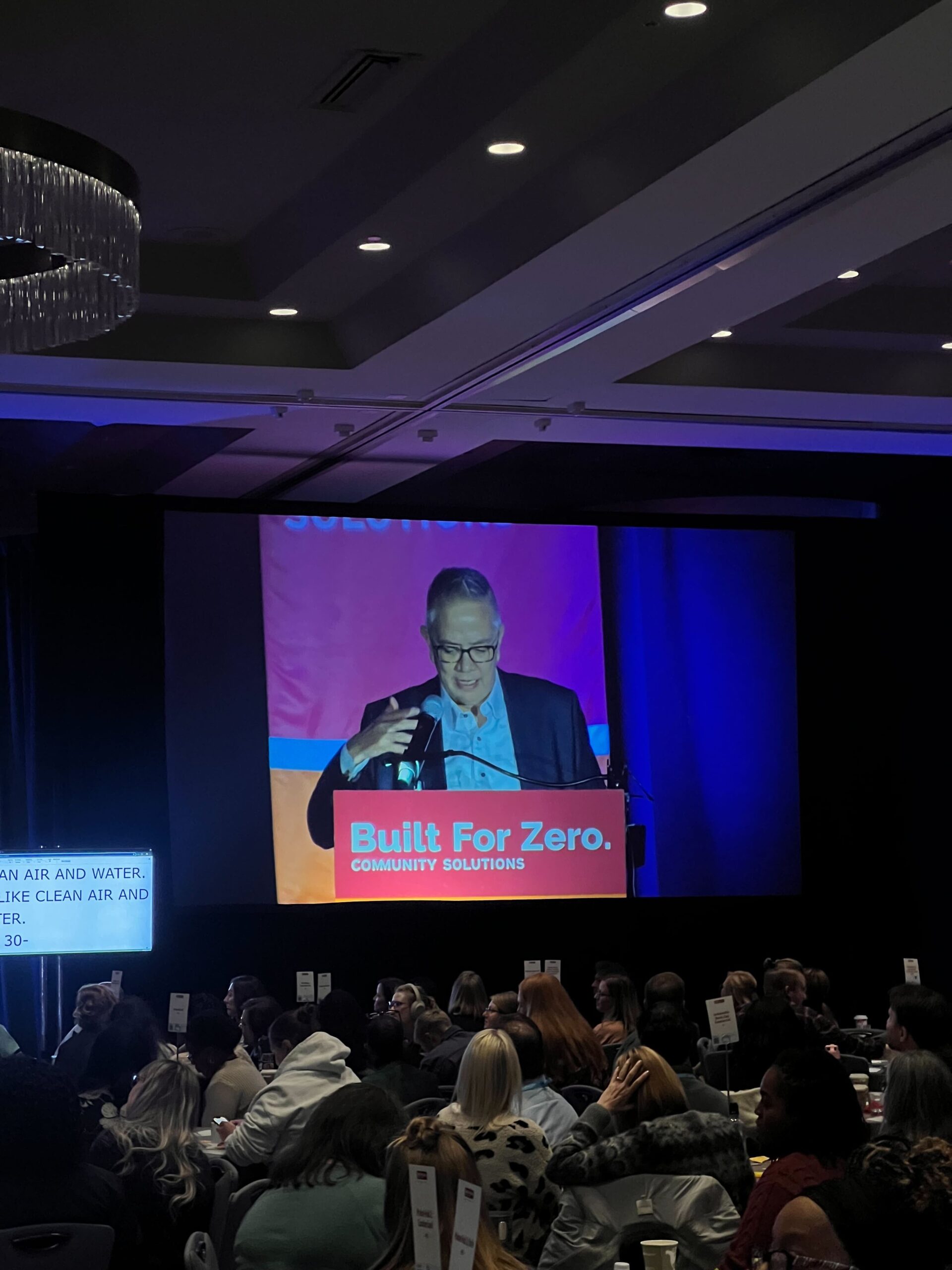
Jennifer Ho, Commissioner of Minnesota Housing, shared strategies for strengthening collaboration with government entities. Drawing from her decades of experience, she highlighted the critical role of government partnerships in making homelessness rare, brief, and nonrecurring. Ho’s insights underscored how communities can leverage governmental resources to drive impactful change in homeless response.
3. Recognizing milestones in Built for Zero communities
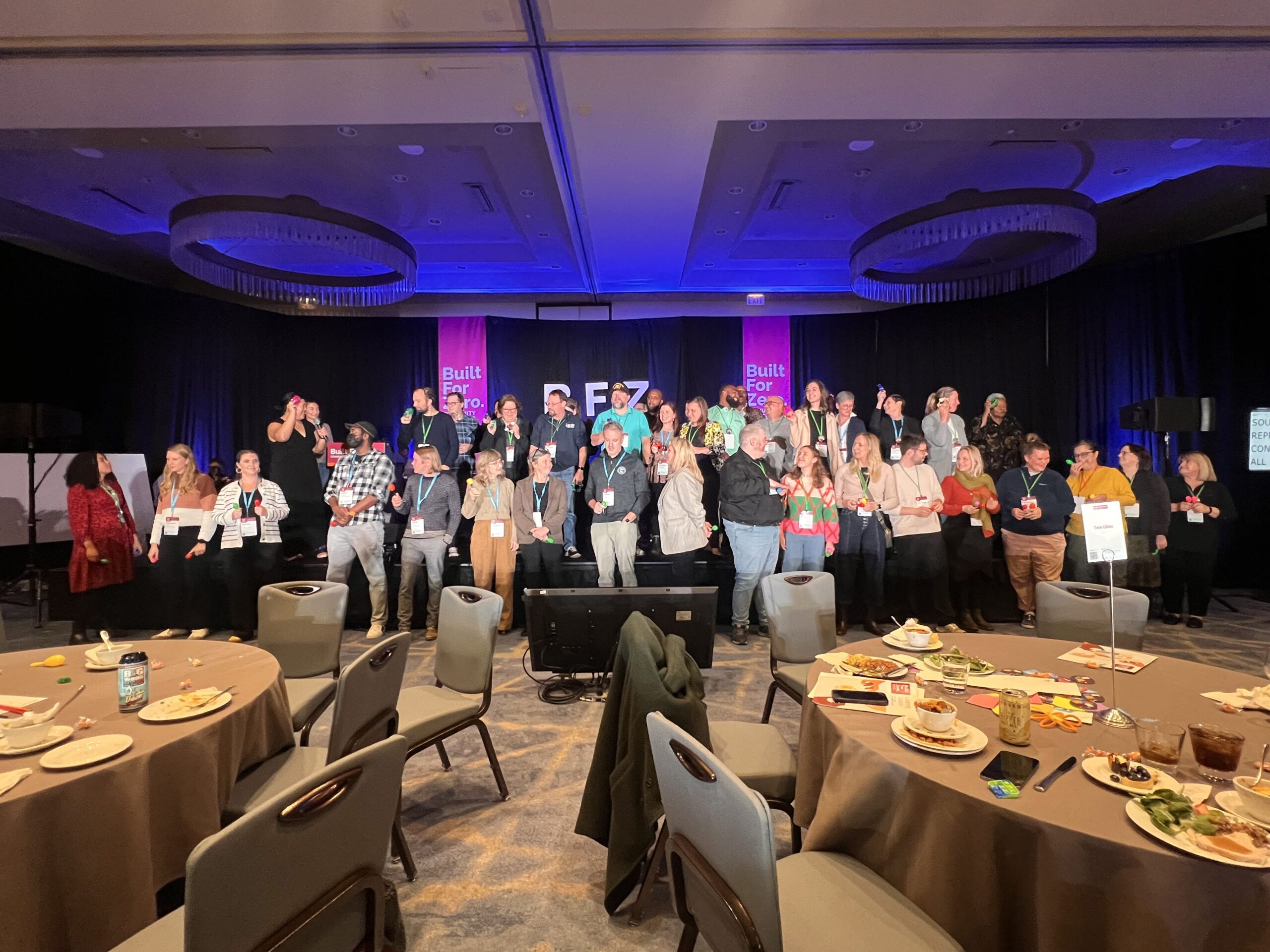
Celebrating progress is vital, and this year’s session honored significant milestones across communities. Achievements like attaining quality by-name data, shifts in homelessness, and sustaining functional zero were acknowledged, demonstrating the effectiveness of data-driven approaches and dedicated communities.
4. Deep-dive breakout sessions: engaging, collaborating, and implementing
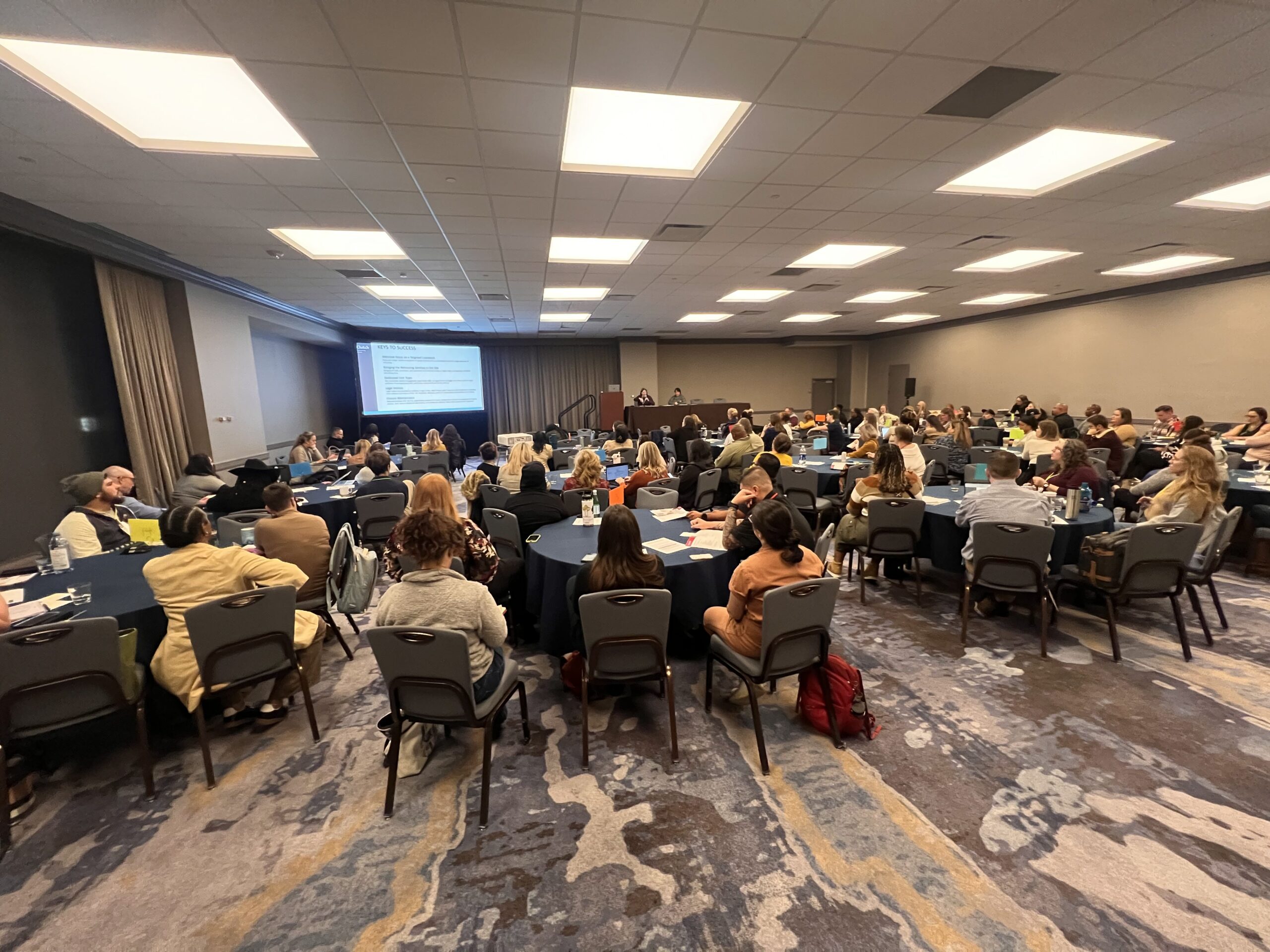
With over 20 breakout sessions, participants delved into key topics ranging from engaging people with lived experience to creating health system partnerships and advancing case conferencing. These sessions provided opportunities for hands-on learning and collaboration, equipping participants with practical tools and strategies to bring back to their communities.
5. Embedding equity and Asset-Framing® into homelessness strategies
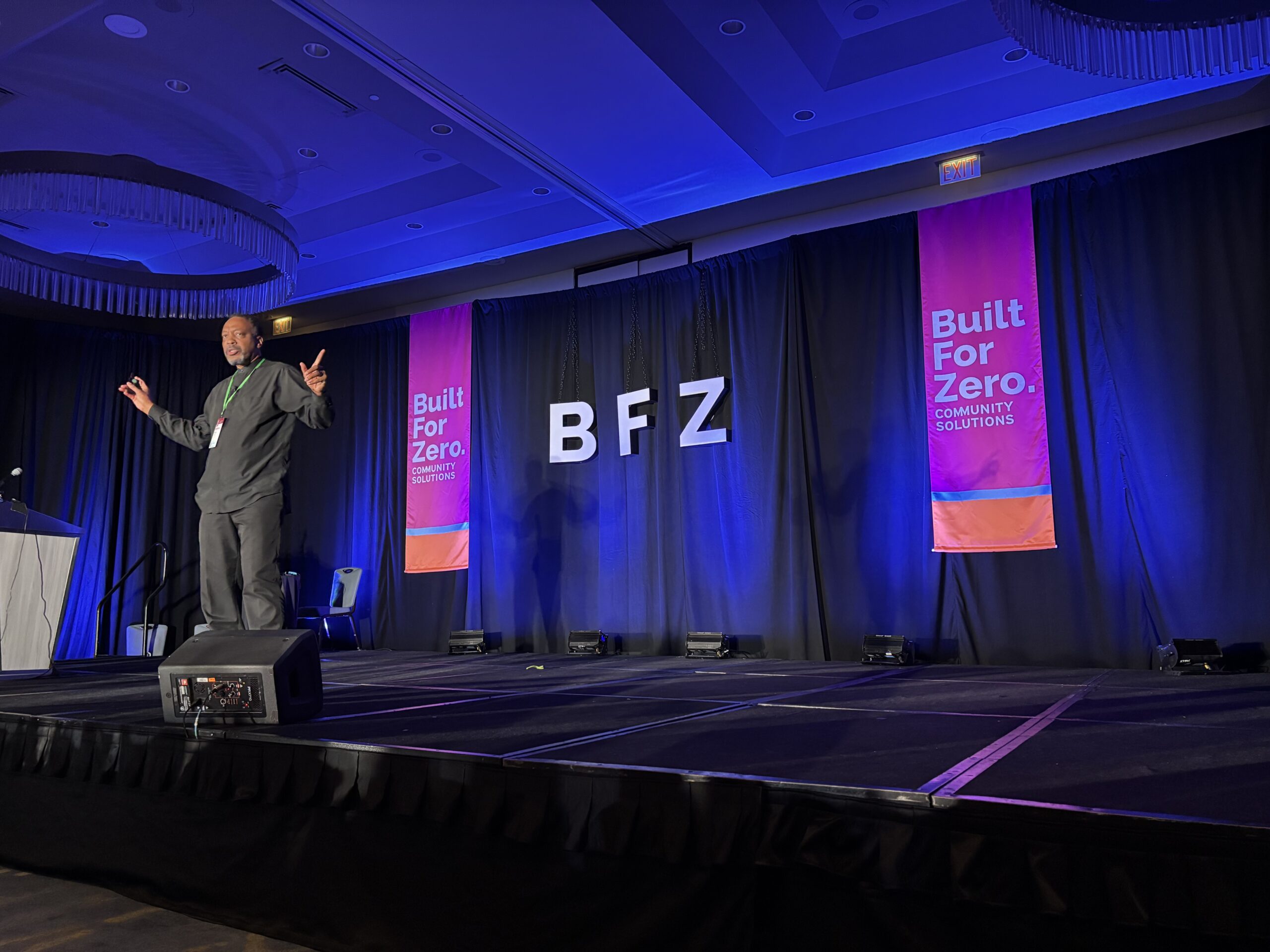
Trabian Shorters introduced participants to Asset-Framing®, a cognitive framework designed to shift narratives toward equity and systemic change. Through an interactive workshop, Shorters guided attendees in using the model to build more inclusive and empowering approaches to homelessness. This method offers a transformative way to make stronger cases for equity-focused policies and actions.
6. Exclusive screening of Until We’re All Home sparks conversation
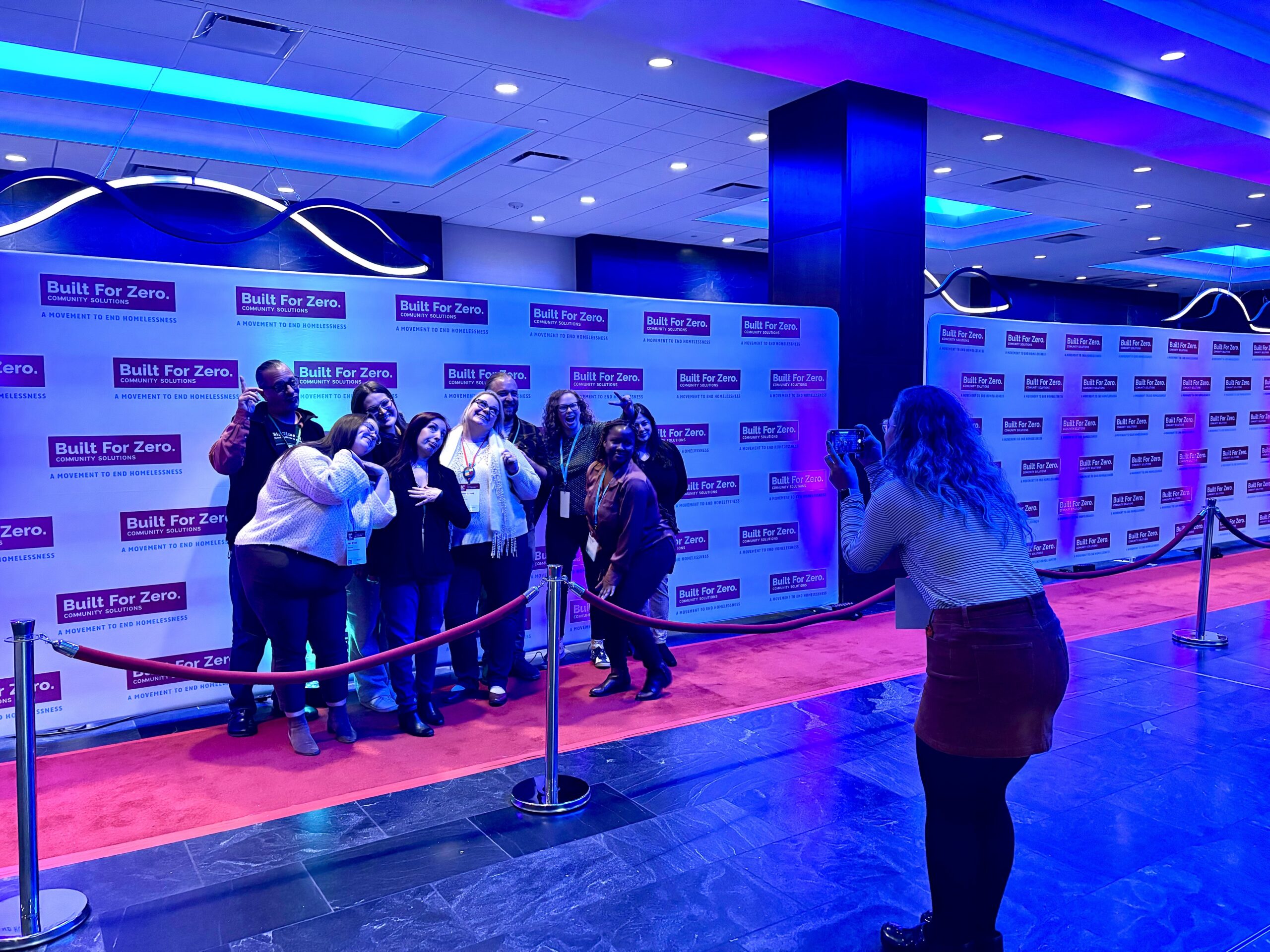
On Thursday night, attendees were treated to an exclusive screening of the Until We’re All Home feature film. The film is a mosaic of stories about solving homelessness told by people working to tackle this complex social problem, one day at a time.
Following the premiere was a panel discussion with David Bornstein, CEO of Solutions Journalism Network, several of the film’s storytellers, and the filmmakers.
